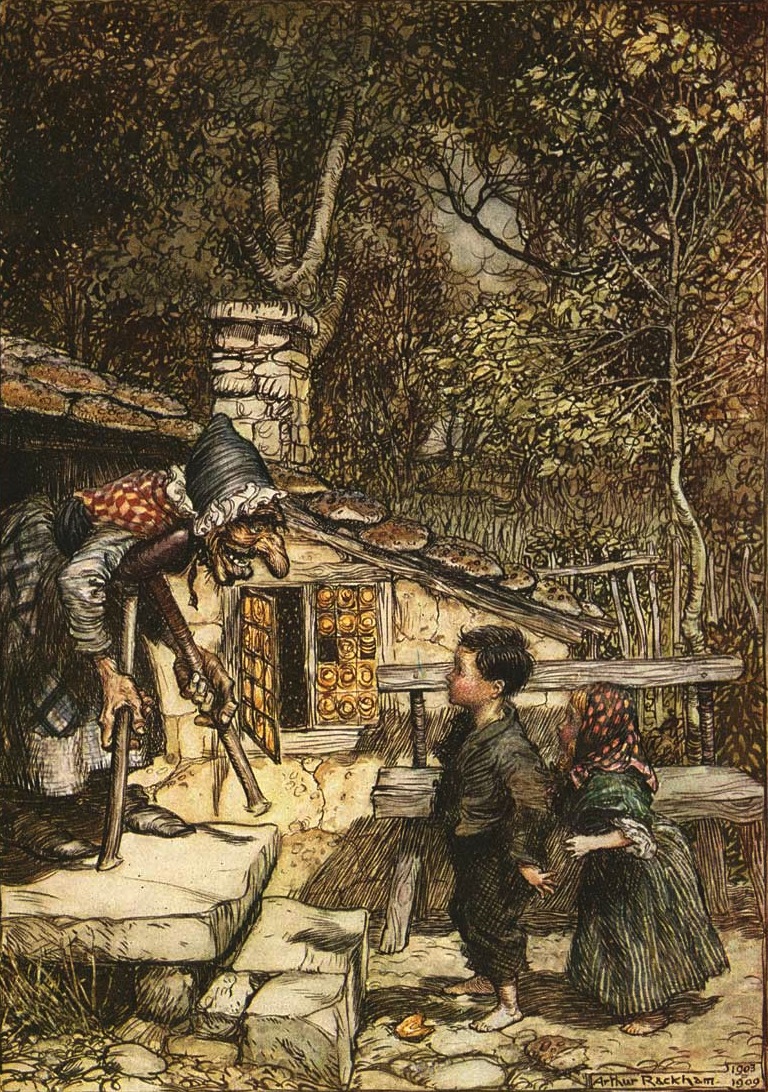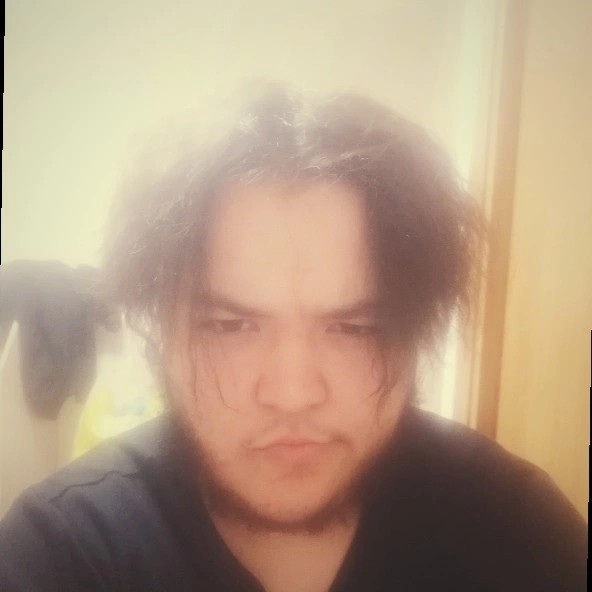
Hexenjagd im Märchen
(I recommend to read while listening this.)
"Vor einem großen Walde wohnte ein armer Holzhacker mit seiner Frau und seinen zwei Kindern; das Bübchen hieß Hänsel und das Mädchen Gretel."
In the 14th and 15th centuries, Europe suffered the Great Famine (1315-1317) whereas people had nothing to eat other than the dirt from graves. Millions of people who suffered the Great Famine had met death, in a hard, slow and painful way. Whereas people were starving, as chroniclers like Jean Froissart account, they did not want their children to suffer the same. Thus, abandoned them into wilderness. Seems similar?
As May McKisack says, "The canon of Bridlington speaks of misery ‘such as our age has never seen’. Men were reduced to eating horses and dogs and charges of cannibalism were not confined to the Irish."
Back in the day cannibalism and witchcraft were not so rare, so was witch hunting.
People wanted to blame someone for this, for the very pain that they are dealing with, for the Great Famine. They found it, at least the heavily Christian region, in the end. They blamed witches. As for politicians it was an easy sell, without any responsibility they could blame them and still save their place in the social status. Also, working class has been given a place to blame.
The witch hunts were truly horrific, including burning, torturing and imprisoning. Yet, they were not so picky about who to see as a witch. These days, if a woman is old and single, people would easily believe that she is a witch.
The law of that time stated that upon being charged with witchcraft, not convicted but charged was enough for all this damnation. Of course, then to be burned at the stake. During that time courts executed around 3,200 people in Southwestern Germany. Without even a single bit of empathy. Even further, in one instance a court ordered the massacre of two villages to purge the area from an alleged witchcraft.
No one was safe, men, women and children could all be found as guilty. Even a priest who is over 90 years old, even almost 50 children under the age of 12, were executed. It was madness.
Word became the blame, blame became the weapon of evil.
As you see, it is not a surprise that this famous story and many german folklore stories are centered around defeating evil witches. As it was what they were doing at the time.
In the modern tellings of Hansel and Gretel, mother is said to be as step mother for some reasons. First, to preserve the purity and sanctity of motherhood and as a second reason, just social reality. Because women often died in childbirth at the time, so step mothers were way more common than they are today. Interestingly, their step mother dies when they kill the witch. Which raises the question from a Shyamalan-esque approach that says "Was the mother and the witch same person all along?"
Which must be said it is unlikely. It can be the implication of "The children will return back, only if the wicked women die, to their patriarchal home."
It still delivers a great message that "The beautiful is not always the good." Yet, if we delve deeper on this, it feeds us a more sexist idea.
In that story, both the mother and the witch are women and both of them want them to die in a painless yet certain way. Where the father figure is depicted as more of a protective, morally acceptable area, woman figure is completely thrown into both villain and tragic hero. Showing the deep male dominant influence in literature of that time. Also, justifying their actions for the next generations to keep themselves morally right in the innocent minds of children. Even if we look at how Gretel and Hansel acts in the heat of events can tell that it is a way of delivering sexist moral rules.
Even at a simple glance, pebbles go with Hansel, bread goes with Gretel. Which can be interpreted as even in the equal grounds of risk and danger, the burden is still on the shoulders of man. Even it can be said that woman can only own what is given, in this instance bread, but man can find their way on their own since pebbles can be gathered among the forest all along. Implying that men can take care of themselves, yet women can only go such distance by their power.
In the forest, when Hansel and Gretel's parents told them that they were going to gather some wood and deceived them with axe-like sounds made by a dry branch tied to a tree to let the wind shook it. Hansel and Gretel believed that, showing both can do mistakes and both are innocent neither less nor more than each other.
When the night fallen upon the forest that cover them they awoke. Once again, their step mother depicted as wicked, calling their own children wicked.
Not after a long time the famine had returned, where the stepmother once again gave the idea of abandoning their children again. Also emphasizing the effect and repulsive emotions of the over-population that happened just before the Great Famine. As the father wanted to share their last food with his children, the step mother had no intention of the same kind. Showing that patriarchal men are depicted as morally compromised under the influence of women demonized as witches, also beautifying the traditional marriage and importance of maidenhood for marital life. Hansel, awoke in the night before they were send away again to gather pebbles to find their way back home. Yet in the story, their stepmother locked the door, so he could help himself. Again, trying to intensify that even if the patriarchal society of the time intended to make things right, witches would not let them.
They were abandoned only with some bread in the forest they had went before, they awoke in the middle of the night, only to realise no one is coming for them. All the time the boy comforting his sister, there were no crumbs remained because the birds of the forest had eaten them all. Which tells us another story that all the people who sow the farm had nothing because all the crops has gone with the famine, leaving them hopeless and clueless about what to do next. Then the ate the berries scattered upon the ground, informing us about how the people have no way of feeding themselves but only through scavenging and stealing, while showing that it was a need for survival at the time.
There, they started to wander deeper into the forest, searching for help. If they wouldn't have found help they would have been perished, yet, they saw a white bird and stopped by to listen to it. Which also depicts the idea of an angel by using the white bird and the singing is most probably the verses that they have been taught, which is their prayers. Also constructing the idea that the only way they could be saved from such thing is through the way of belief since they were heavily Christian at the time. The bird leads them to a little house, as they come closer, they realize the house was made of bread and roof was covered by cake. This can be most of a fictional visuality but I take a different approach by taking the starvation of time into account, in my interpretation, I believe that the sugar-like house is a reflection of how people are losing their minds because of starvation. Also Hansel and Gretel eating the house is people giving up on their mental to suppress their hunger, in a broader sense, whole country slowly collapsing into madness because of the Great Famine.
There a thin voice of a witch calls them inside, asking them to come in. At that part of the story, woman sees and confronts them, as a part of my interpretation, this can be a depiction of human traps for the cannibals. Alluring people into food to eat them afterwards. Continuing to story, she feeds them, which can be interpreted as a communicative allure, such as promising food to manipulate people into a certain area to execute them in order to turn them into edibles. Also making a good place for them could be interpreted as after care of execution.
Next morning, the witch locks Hansel behind a gate. Which undermines the idea that, that time's so called bad woman is restraining man by using seductive power. Almost depicting the men who burned the so called witches at stake look like an innocent child allured by promised goods. You can also take a different approach if you approach this in a more aggressive feminism but it is way too extreme to have it in this writ. However, witch feeds Hansel to get fatter in order to eat, in the next weeks Hansel doesn't change. So witch becomes impatient and decides to cook him, Gretel wails and prays "Dear God, help us! If only the wild beasts had eaten us in the forest, we should have died together!". Once again giving the idea it is better to be wildly eaten by beasts than to be eaten by a woman.
Early next morning, witch pushes the Gretel to fiery oven, emphasizing the idea that the witch-like women will push good women into hell. Yet, there things take a turn, Gretel pushes witch into the oven. Showing that men can't do anything to those witches in theory yet good women can turn things upside down. In essence, an attempt to make the story seem as a moral message for women.
The witch burns and Gretel saves Hansel. They cheer up and enter into witch's house, they find jewels and pearls. In another approach it can be an intention to show that the studies or materials of so called witches could be a frontier to that time's technologies.
At the end of the story, a duck helps them over to cross a river. In my opinion, this can be interpreted as the river of styx also known as dread river of oath, also claiming the duck as Azrael since the belief of the time was Christianity. When the river is crossed they came back to their father's arms, once again a sympathy for patriarchal superiority and turning the father figure into both moral and emotional anchor. Also Gretel spills the pearls and jewels across the floor when she shook out her apron and Hansel also gives out the jewels and pearls he took from witch house, in a very extended reach it can be seen as a confession at church and also not using what they found in the studies owned by the blamed woman of their time but instead letting the church have it. As they returned, they realize that the step mother has died as well as the witch. Giving the idea that both could be the same, unlike Gretel who only acts on the behalf of Hansel or his father. They tend to make their own choices, while the consequences always be a failure for them.
After all things happened, the troubles end. They live together in joy. Promising a good ending if the provided moral rules and social perspectives are taken granted, at the same time creating moral rules and social perspectives that corrupts the roots of human equalism.
Thus, educate your children, do not feed them with any story and riddle you find over the counter. Because if you do not assign them a certain way to mature, they will be assigned one. A way that can ruin or build their future. Grant them the future they deserve, do not abandon them to this wicked earth alone to be eaten by ideas, perspectives and ethics of humankind.
Even the child story, Hansel and Gretel is not a quaint fairy tale, it is famine’s echo, patriarchy’s justification and witch hunt propaganda clothed in sugar.
Yorumlar
